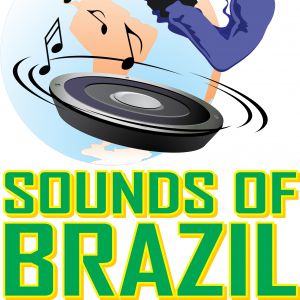You Must Have Heard About Brazilian ?Carnival?Posted by Sounds ofBrazil on January 12th, 2017 The great popular party takes place in Brazil, dragging millions of people to take the streets and celebrate life. Ask anyone about “Carnival” and chances are they will know what it is. Besides, for any foreigner interested in the South American country, Carnival is one of the first words they learn how to say in Portuguese. The festivity of live entertainment is so great that it has become one of the major references of Brazilian culture.
However, Carnival is not genuinely a Brazilian celebration. Back to ancient times, the historical research found that carnival festivities underwent many transformations and became present in different cultures of the world. It is really interesting to observe that the origins of Carnival mix different cultures and behaviors, with different meanings and contexts that led to its birth in each region but speaking up on the exactly essence of the celebration: an ode to the freedom and multiple cultures coming together to celebrate. The carnival is the oldest profane party that has been registered since it existed for more than 3 thousand years. Some scholars try to relate carnival feasts to the rituals of worshiping the Egyptian gods Isis and Osiris, but most studies trace its roots back to ancient Greece, from the cult of the god Dionysus, which was later celebrated in Rome as Bacchus, spreading to the countries of Neolithic culture. It is said that the first followers of the god were women, who saw in the days that were dedicated to him a moment to escape the vigilance of the husbands so that they could fall in the folia. On the days allowed, they would come out on the flocks, their faces covered with dust and robes transformed or torn, singing and shouting. The men were quick to join in this celebration. In Ancient Rome, the word Carnival was incorporated by traditions of Christianity. Because Catholics are not supposed to eat meat during Lent, they started calling it the “Carnevale”, what translates “to put away the meat”, earthly pleasures.
Also in Rome, a “Saturnalia” would be a party equivalent to the carnival. A "naval car" would parade through the city streets while people dressed in masks and play games and jokes. During the Modern Age, masquerade balls such as costumes and floats were incorporated into the party. Much of the inspiration of our contemporary carnival was brought with a great influence from French culture in Brazil, mainly, in the XIX Century. Presently, the prestige achieved by carnival parades, mainly in Rio de Janeiro and in São Paulo led the world to watch mesmerized what happens in the huge country. Colors, music (especially Samba) and freedom are celebrated by millions of Brazilians and tourists. “The joy of Carnival is known to everyone. Every year, Sounds of Brazil receives dozens of requests for entertainment sets across the world that involves Carnival, be it samba dancers, drummers, musicians, or Carnival Parade”, explains Daniela Queiroz, Managing Director of Sounds of Brazil; a global Event agency in Dubai specialized in Events and Entertainment. If you have never seen the huge Carnival Parades, don’t miss it out this year and mark 28th of February on your calendar! Like it? Share it!More by this author |




